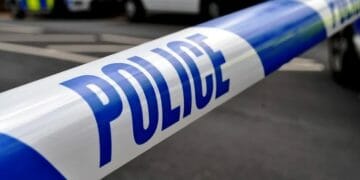
New COVID-19 infections in Cumbria have almost doubled in a week as the county deals with its highest number of affected schools since the start of the pandemic.
For the week ending June 18 there were 382 new cases, up from 198 the previous week. New cases have approximately doubled in each of the last three weeks.
Cumbria’s case rate of 76 per 100,000 population remains below the national (98/100k) and regional averages (233/100k). Nineteen of the top 20 worst affected local authority areas are in the North West.
Infection rates vary significantly between age groups, with rates in the 12-24 age group in Cumbria sitting at 243/100k compared to just 16/100k among the over 60s.
This high case rate among young people is being seen in the impact on schools, with 55 schools currently dealing with incidents in school, 10 in full outbreak status and three schools currently closed.
In response, last Friday Cumbria launched ‘surge testing’, asking everyone aged 12-30 to get a PCR test. School age children are being offered testing in school, while those not of school age can attend a local PCR test site or get a test delivered to their home via GOV.UK.
The latest confirmed testing data for Saturday and Sunday show an additional 2,845 PCR tests completed compared to the five-week average. Further data will be available in the coming days.
Hospitalisations remain low
The number of people being admitted to hospital in Cumbria as a result of COVD-19 has remained low.
81 per cent of Cumbrian adults have now received their first COVID-19 vaccine dose, with 63 per cent having received both doses. Vaccination is now available to everyone aged over 18. People can book their vaccination at www.nhs.uk.
Nationally, data is suggesting that about three-quarters of people who have tested positive for COVID-19 in the last 28 days and have attended accident and ermergency have not been vaccinated.
The latest COVID-19 situation report for Cumbria can be found at: www.cumbria.gov.uk/stopthespread
Colin Cox, Cumbria’s director of public health, said: “The rapid spread of COVID is concerning, particularly among younger age groups but we are not yet seeing a significant impact on our hospitals which is good news and reflects the success of the vaccine rollout.
“However, the high number of cases is causing serious disruption in schools, with this week having the highest number of schools affected at any one time during the pandemic.
“Our contact tracing work has shown infections started to rise after half-term when people had been on holiday or mixed more widely, but transmission is now happening within schools and families.
“Our surge testing campaign continues, and I’d like to thank the thousands of people who have already heeded the call and been tested. By helping us find people who are infectious, surge testing gives us a chance to get a grip on this and prevent further spread.
“Overall, the basic public health advice is still crucial – wash hands regularly, wear a face covering, give people space, meet outside where possible, get vaccinated, get tested if you have symptoms or are asked to do so. If we just keep going for a while longer, we will get through this.”































